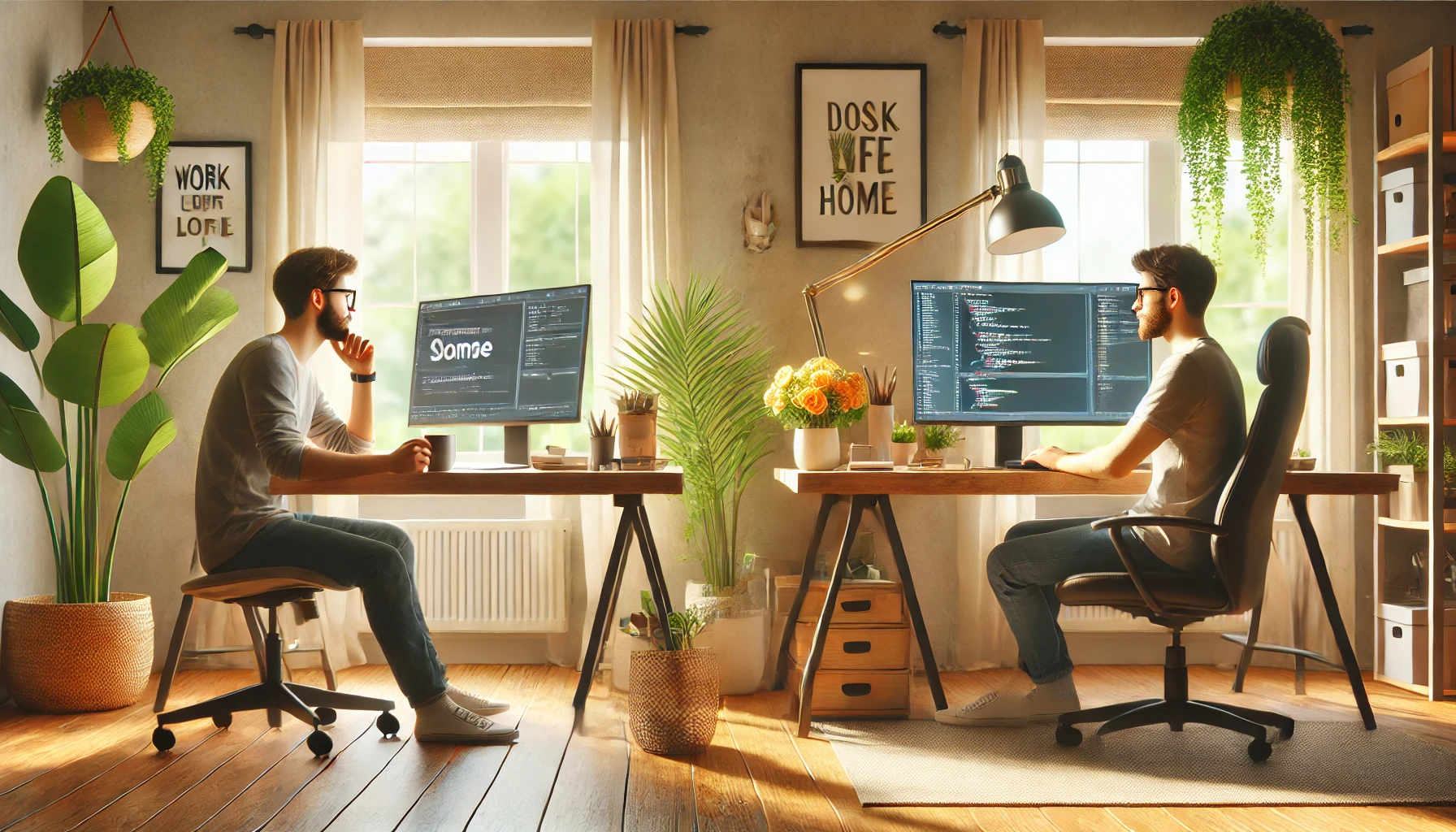In today's increasingly digital world, maintaining a healthy work-life balance is one of the biggest challenges for software developers—especially for those who freelance or work remotely. With flexible hours and the constant availability of technology, it can be easy to blur the lines between work and personal life, often leading to burnout and decreased productivity. In this blog post, we’ll explore strategies and practices to help developers maintain a better work-life balance and create a more fulfilling lifestyle.
1. Establish Clear Work Boundaries
The flexibility of freelancing and remote work can quickly turn into a double-edged sword if boundaries are not clearly set. Defining clear work hours is crucial to preventing your work from creeping into your personal time. Whether you’re a morning person or prefer working late into the night, stick to a consistent schedule that aligns with your natural rhythms but also allows you enough personal downtime.
Create a Dedicated Workspace: If you work from home, creating a dedicated workspace can also help you mentally separate work from personal life. It doesn’t need to be a fancy home office—just a designated area for work that you can leave behind when you're done for the day.
2. Learn to Say No
Many developers, especially freelancers, face the temptation to say "yes" to every opportunity that comes their way. It may feel like you have to accept every project to maintain financial security, but overcommitting is a common route to burnout. Learning to say no to projects that don’t align with your capacity, interests, or desired work hours is essential.
3. Use Time Management Techniques
Managing your time effectively is a key element in achieving work-life balance. The good news is that there are several tried-and-true techniques that can help developers make the most of their working hours without letting work overflow into personal time.
Pomodoro Technique: The Pomodoro Technique involves breaking work into intervals—usually 25 minutes of focused work followed by a 5-minute break. This helps keep focus sharp, prevents burnout, and makes it easier to stop work at the end of the day.
Time Blocking: Set aside specific blocks of time for particular tasks throughout the day. By assigning tasks to time slots, you can keep your day structured and avoid getting caught up in unplanned distractions.
4. Take Care of Your Physical and Mental Health
Maintaining a healthy lifestyle is crucial for keeping stress at bay and maintaining productivity. A healthy body supports a healthy mind, which in turn helps you work better.
Exercise Regularly: Whether it's a 15-minute walk, a yoga session, or a full workout at the gym, getting some form of exercise is essential. Exercise helps reduce stress, improves mood, and increases overall energy levels.
Practice Mindfulness or Meditation: Mindfulness and meditation are fantastic tools for maintaining mental health. Spending just 10 minutes a day meditating can help calm your mind, improve focus, and help you handle stress more effectively.
5. Disconnect Regularly: The Digital Detox
With emails, Slack notifications, and constant connectivity, stepping away from work can be challenging for developers. However, disconnecting regularly is crucial for long-term health and well-being.
Make it a point to take digital detoxes, even if it’s just for a few hours on the weekend or during your evenings. Avoid checking work emails or messages during personal time, and consider using apps like Forest or Freedom to limit time on distracting websites or applications.
6. Focus on Personal Growth and Hobbies
A fulfilling life is about more than work. Spending time on hobbies and personal interests outside of development helps keep you balanced and prevents burnout. Hobbies that have nothing to do with coding can offer a mental break and stimulate creativity.
Whether it’s painting, playing an instrument, cooking, hiking, or gaming—set aside time to engage in activities that bring you joy. They will help you feel refreshed and ready to tackle the challenges of the next workday.
7. Build and Nurture Social Connections
It’s easy to become isolated, especially if you work remotely or as a freelancer. However, social interaction is a core component of happiness. Make time to connect with friends, family, or even online communities of like-minded developers.
Consider joining a co-working space where you can interact with other professionals, or participate in local developer meetups to meet new people in your industry. Platforms like Discord or Reddit also have developer communities where you can share experiences, get advice, and feel less isolated in your journey.
Conclusion: Balancing Life and Work in 2024
Maintaining a healthy work-life balance as a developer, especially if you work remotely or freelance, can be challenging, but it is absolutely achievable with the right strategies. By setting boundaries, prioritizing health, managing time effectively, disconnecting, and nurturing personal relationships, you can ensure that both your work and personal life thrive.
Remember that achieving work-life balance is not a one-time effort but an ongoing process. There will be times when work demands more of your attention, and that’s okay as long as you make the time to rebalance later. The key is awareness and conscious effort—being mindful of when to work and when to step away. After all, a well-rested and happy developer is a productive one.








